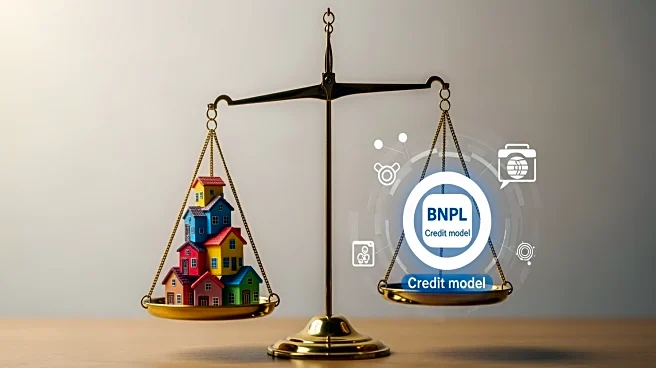What's Happening?
The Buy-Now-Pay-Later (BNPL) credit model is increasingly becoming a part of everyday life in Ghana, financing not only luxury items but also essential goods like groceries and school uniforms. This shift is reshaping urban life, as non-banking credit institutions
proliferate. The BNPL industry is projected to surpass $560 billion globally by 2025, driven by factors such as smartphone penetration, informal economies, and cultural aspirations. However, the widespread use of BNPL for essential spending raises concerns about creating a class of 'credit-dependent citizens' who rely on fragmented, deferred obligations to manage their monthly budgets. This trend could lead to systemic fragility if not carefully regulated.
Why It's Important?
The growing reliance on BNPL for essential purchases in Ghana highlights a potential risk to urban stability. As more citizens become dependent on credit for basic needs, the economic resilience of cities could be compromised. This dependency can lead to lower household savings, weaker consumer confidence, higher mental health burdens, and reduced civic engagement. These factors collectively undermine the social fabric and economic stability of urban environments. The situation calls for policy interventions to build healthy credit ecosystems, including capping effective interest rates, mandating plain-language contracts, and promoting financial literacy.
Beyond the Headlines
The BNPL model's impact extends beyond individual financial stress, affecting broader cultural and societal norms. It challenges traditional notions of dignity and success, which are increasingly measured by immediate access to goods rather than long-term stability and growth. This cultural shift necessitates a redefinition of success, emphasizing stability, growth, and community contributions over material acquisition. Media and community leaders can play a role in promoting this narrative, encouraging a culture of patience and prudence in financial matters.

















